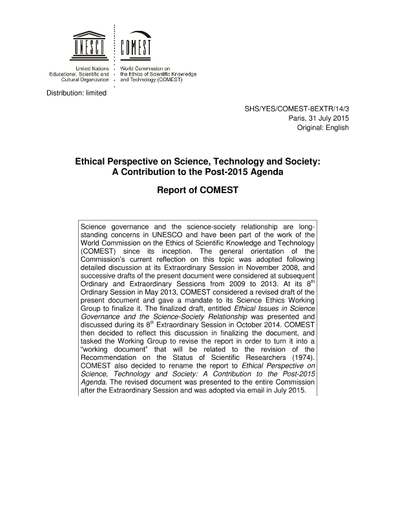Ethical concerns about DALYs and global disease studies often discussed in the public health literature under the heading of social issues include whether DALYs should be age-weighted or time-discounted. Science is not the same as technology.
Because the results of global burden of disease studies can be influential in the setting of health priorities they illustrate well the importance of the ethics of.

. The idea that science is dangerous is deeply embedded in our culture particularly in literature yet science provides the best way of understanding the world. To provide the highest level of care the entire caregiving team needs to form a partnership having the best interest of the elder as. The ethics of technology is a sub-field of ethics addressing the ethical questions specific to the Technology Age the transitional shift in society wherein personal computers and subsequent devices provide for the quick and easy transfer of informationTechnology ethics is the application of ethical thinking to the growing concerns of technology as new technologies.
This paper is intended to propose an ethical framework in which to discuss ethical issues that are likely to arise and the means to deal with ethical dilemmas involving the elderly and those who provide eldercare whether professionals or family members. In contrast to technology reliable scientific knowledge is value-free and has no moral or ethical value. Scientists are not responsible for the technological applications of.

Identifying Ethical Issues Of Nanotechnologies

Ethical Perspective On Science Technology And Society A Contribution To The Post 2015 Agenda Report Of Comest

Report Of The International Bioethics Committee Of Unesco Ibc On Ethical Issues Of Neurotechnology
0 Comments